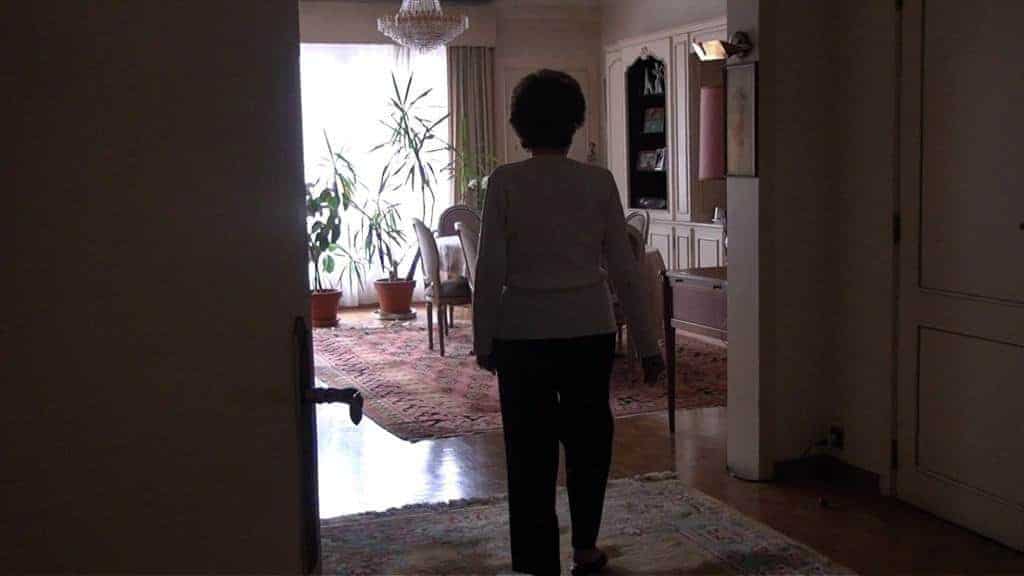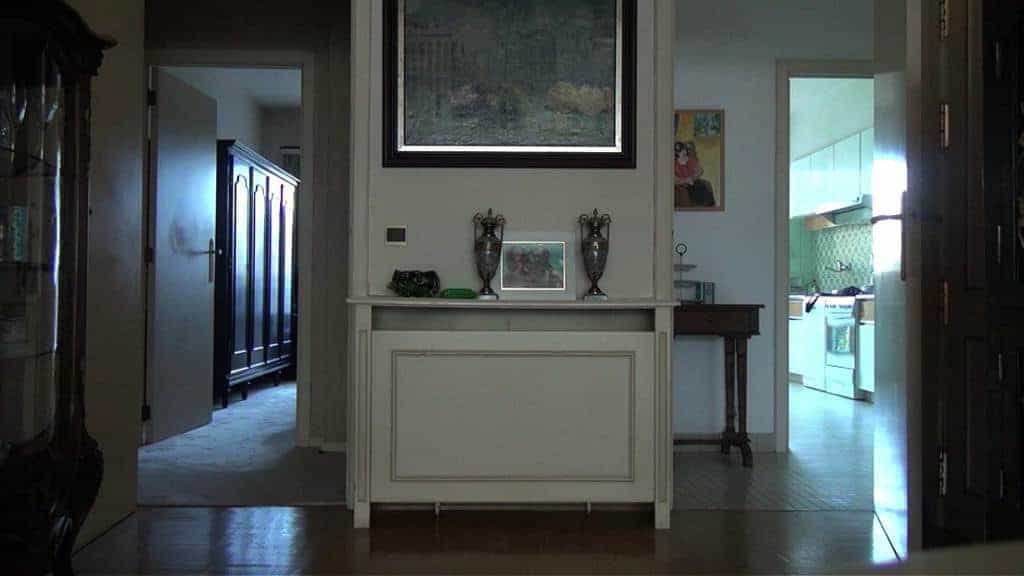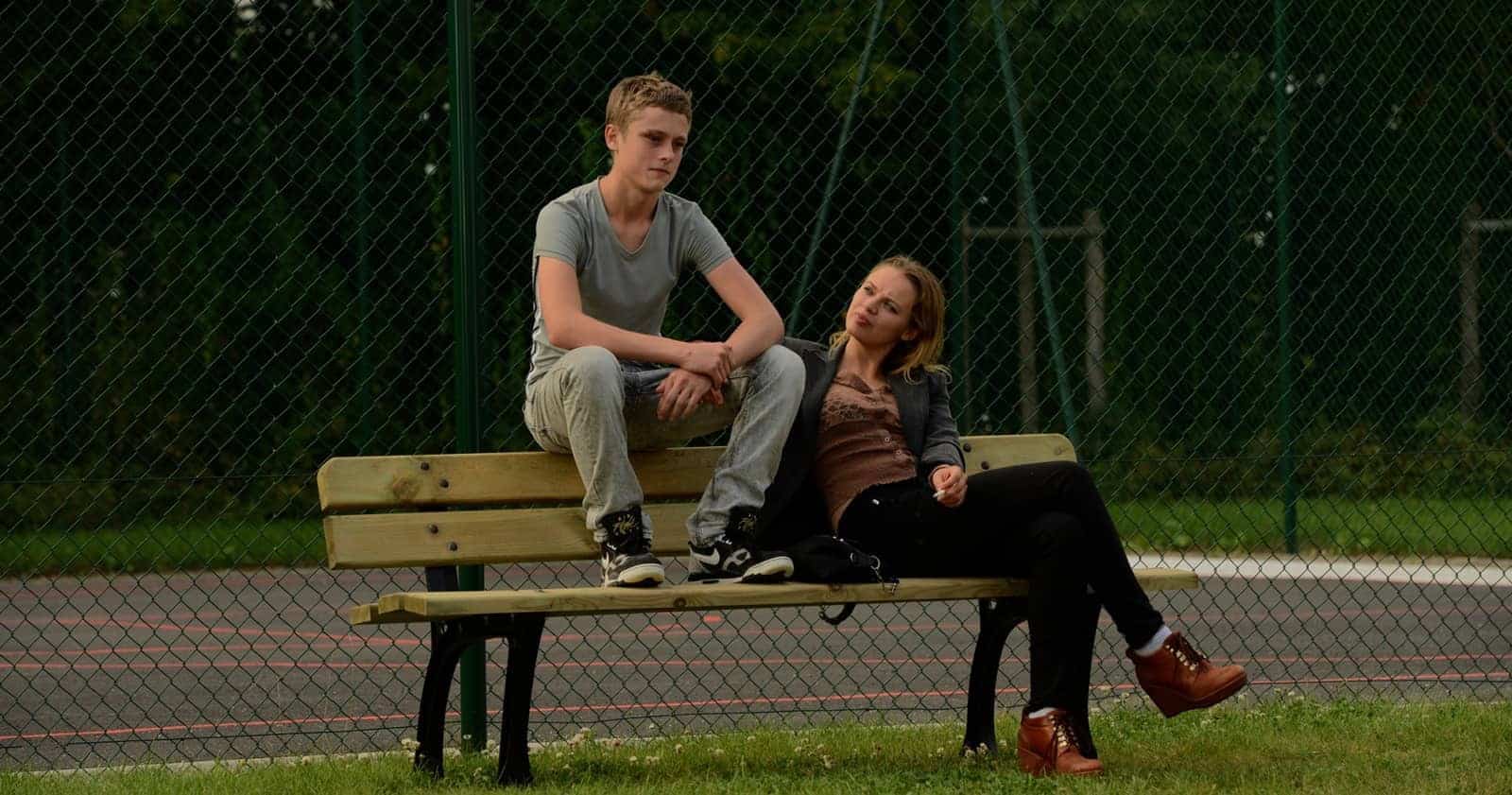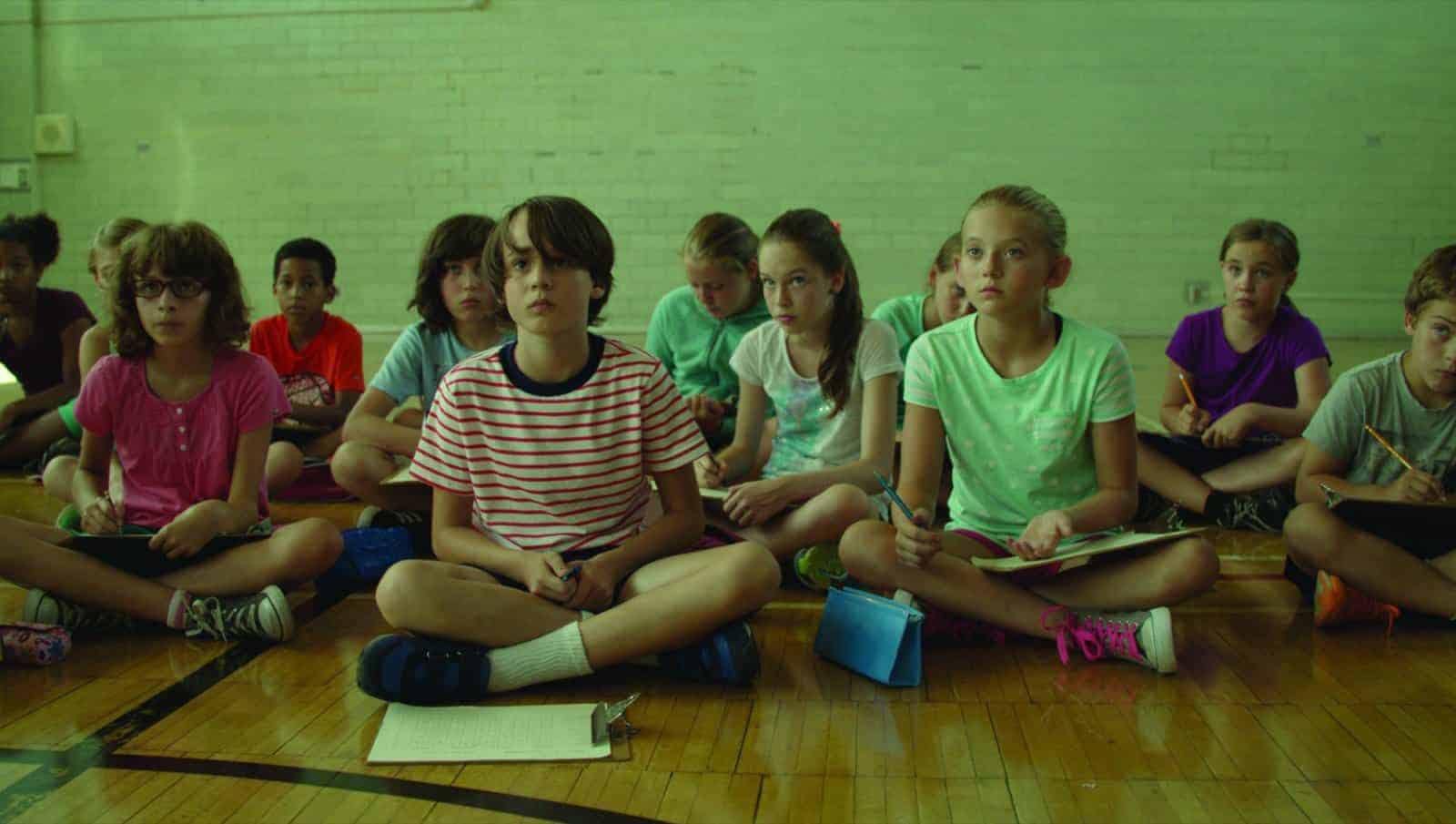Alex Heeney reviews Chantal Akerman’s moving cinematic essay No Home Movie: a tribute to her mother, a holocaust survivor, and a subtle exploration of Jewish “suitcase-ready” culture.

Two minutes into the first Skype conversation between Chantal Akerman and her mother “Maman” in No Home Movie, I was a goner. Maman lights up at the sight of her daughter’s face and the sound of her daughter’s voice. It’s clear from every smile, every gesture, that there’s great love and warmth between them. I’ve never seen love expressed so purely on camera.
The scene is a change of pace from the film’s opening, which is alienating and even trying: four nonstop minutes of watching a fragile tree blowing in the wind. It may be a bit overkill as a symbol for resilience, but Akerman is teaching us patience. Most of the film’s images take time to find resonance. Eventually, they devastate.
The film is mostly set inside Maman’s large and empty Brussels apartment. Maman has accumulated many possessions, but there are few people in her life. Maman’s only surviving relatives are her two daughters and some cousins in the United States. When Akerman shoots the apartment’s empty rooms and hallways, occasionally with Maman in frame, small and near the back, we feel the absence of family.

For Akerman, her mother’s apartment is a home base, a regular and comforting stop on her travels. Though Maman is always enthusiastic to see her daughter, she has started to slow down, growing increasingly frail with age. The spectre of an empty apartment looms in the film. The space will be devoid of meaning, no longer a “home”, when Maman is gone.
As a Jew, Akerman’s feeling of homelessness is magnified because of the diaspora and the constant threat of persecution: as Simon Schama puts it, it’s a “suitcase ready” culture. For thousands of years, Jews were persecuted, treated as foreigners or second class citizens wherever they settled. It’s not just that Maman’s apartment will lose its warmth once she passes, but that Maman’s death will leave Chantal unmoored, without further ties to her family and past.
As an adult, Akerman felt cut off from her tradition and her culture. Though Akerman studied at Hebrew school for three years, her father eventually pulled her out. The end of the war precipitated Akerman’s father’s rejection of the practices of Orthodox Judaism. They stopped regularly celebrating the Sabbath. Akerman’s parents were irreparably scarred by the holocaust — scars which marked Akerman, as well.
Maman moans slightly as she moves around — possibly just an affectation, but possibly the mark of deeper trauma. She’s a Holocaust survivor. Her family fled Poland for Belgium in the late 1930s, only to be sent back to Auschwitz by the S.S. when she was fifteen. Akerman tries to get her mother to talk about the camps, but her mother can’t talk about it directly. Decades later, it’s still too raw.
Jewish culture is passed down orally from parent to child, but Maman’s death will sever that tradition, for many of her stories remain untold. Throughout the film, day or night, Akerman trains the camera on windows covered with curtains. The images are at first frustratingly opaque, but their purpose slowly comes into focus. The light peeking through curtains suggests all that Akerman knows of her mother’s life. When Maman dies, it’s all she’ll ever know. She’s a living record, and that record dies with her. Part of Akerman’s intent is to create a record for when her mother is gone.
Shot digitally and often handheld, using natural light and the camera’s microphone, the footage in No Home Movie resembles a home movie. But it documents the end of Maman’s life, not the beginning, as most home movies do. Akerman can’t tell her mother’s story for her, but she can intimately document the woman she knew, so we don’t need a detailed narrative for the film to be revealing. We understand that Akerman will be without a home when her mother dies. What little semblance she had of one is now forever committed to tape, there to be revisited. Maman passed away in 2014 and Akerman followed in 2015, but No Home Movie remains a loving tribute, sure to stand the test of time.
This is an edited version of a review originally published on September 9, 2015 at the Toronto International Film Festival. The film will be available on Fandor starting April 1.


